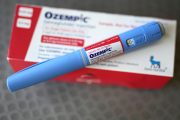
The Biden administration has just ordered 13 million additional doses of the monkeypox vaccine after a Massachusetts man contracted monkeypox — a rare and generally mild disease.
The U.S. Biomedical Advanced Research and Development Authority (BARDA), a daughter-agency of the U.S. Department of Health and Human Services (HHS), and a part of its Office of the Assistant Secretary for Preparedness and Response, spent $119 million on the acquisition of the vaccine for the monkeypox virus from the Denmark-based biotechnology company Bavarian Nordic A/S. The federal government has an additional $180 million in options if it chooses to exercise them.
According to the company announcement posted on Wednesday, BARDA purchased a freeze-dried version of the JYNNEOS® smallpox vaccine, which is also effective against monkeypox. The first doses of this vaccine version will be manufactured and invoiced in 2023 and 2024.
The company also provided that the majority of the bulk vaccine for these doses has already been manufactured.
According to the company, JYNNEOS is based on a live, attenuated vaccinia virus (Modified Vaccinia Ankara, MVA-BN), incapable of replicating in the human body yet able to elicit a potent immune response.
In 2019, JYNNEOS was fully approved by the U.S. Food and Drug Administration (FDA) for the prevention of smallpox and monkeypox disease in adults over the age of 18 who are at high risk of infection. To date, Bavarian Nordic has supplied nearly 30 million doses of the liquid-frozen version of the shot to HHS.
What is monkeypox, and how dangerous is it?
According to the U.S. Centers for Disease Control and Prevention (CDC), the disease was first discovered in 1958 when two outbreaks of a pox-like disease occurred in colonies of monkeys kept for research, hence the name. The first human case of monkeypox was recorded in the Congo in 1970.
The virus is transmitted from animal-to-human or from human-to-human. It enters the body through broken skin, the respiratory tract, or the mucous membranes (eyes, nose, or mouth). The CDC notes that typically, the virus travels on large respiratory droplets, and since they don’t travel too far from an infected individual, to catch the virus, “prolonged face-to-face contact is required.”
The disease starts with flu-like symptoms, including swelling of the lymph nodes, and causes a rash that can look like chicken pox.
“Currently, there is no proven, safe treatment for monkeypox virus infection,” says the CDC. According to the World Health Organization (WHO), monkeypox is “usually a self-limited disease with symptoms lasting from 2 to 4 weeks. Severe cases can occur. In recent times, the case fatality ratio has been around 3-6%.”
Two previous cases of monkeypox were reported in the United States in 2021. Before that, 47 “confirmed and probable cases” were reported in 2003 in six states in people who had contact with pet prairie dogs.
On Wednesday, the Massachusetts Department of Public Health confirmed that a man who had been to Canada had contracted the virus and was “hospitalized and in good condition.” The agency said there was “no risk to the public.”
Other countries have seen an elevated rate of the rare infection. On Friday, the United Kingdom reported 20 cases of the disease, most of them mild.
According to the UK newspaper Evening Standard, 127 cases have been reported in 11 countries — it is unclear, however, what the timeline was.
According to Brownstone Institute, the cases in Europe exclusively involved gay men. The institute noted that while the transmission dynamics remain unclear, “that hasn’t stopped the usual panic promoters from making hysterical claims.”
According to the Telegraph, the WHO has convened an emergency meeting to address the issue.
CNN reported on Thursday that the CDC said that Americans “should not be concerned” about monkeypox, at least for now.
Jennifer McQuiston, deputy director of the Division of High Consequence Pathogens and Pathology within the CDC’s National Center for Emerging and Zoonotic Infectious Diseases, described the outbreak as “very unusual,” since monkeypox is normally only reported in West Africa or Central Africa. Yet, Americans should not be concerned “that they are at immediate risk for monkeypox.”
The official added that the agency is evaluating whether the shots should be offered to healthcare workers treating monkeypox patients, as well as to other cohorts who may be at “high risk” for exposure to monkeypox.
CDC spokeswoman Christine Pearson confirmed to CNN that there are six people currently being monitored for potential monkeypox, yet they are all “healthy, with no symptoms and are considered at low risk for monkeypox.”
Brownstone pointed to the fact that the shots were developed with American support. “Anthony Fauci’s NIAID has supported Bavarian Nordic with well over $100 million in grants. Whether Fauci and his colleagues will receive kickbacks and royalties for this vaccine remains unknown,” according to the report.
Bavarian Nordic stocks jumped 70 percent following the announcement of the deal with the U.S. government and some of the European countries this week. According to InvestorPlace, “Bavarian Nordic is in the unique position of being able to provide a product that the entire world may soon need.”
Just as “predicted” by the WHO and Bill Gates.






